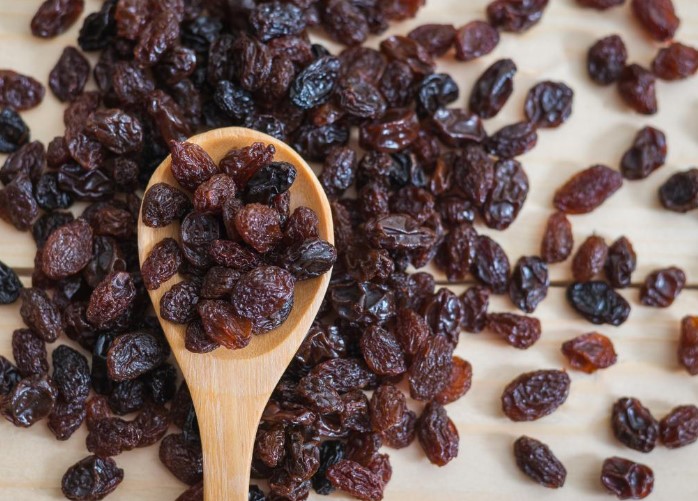Can cats eat raisins? Symptoms of raisin poisoning in cats
Can cats eat raisins? Raisins might be a delicious and healthy snack for humans, but when it comes to our feline friends, the story is quite different. Many cat owners wonder if raisins are safe for cats to consume. This article delves into the dangers of feeding raisins to cats, the science behind it, and safe alternatives to keep your feline friend happy and healthy. Follow Cat Memorial Stones !!
Can Cats Eat Raisins?
No, cats should not eat raisins. While there is some uncertainty regarding the exact reason why raisins and grapes are toxic to pets, it is well-documented that they can cause serious health issues in cats, even in small quantities. Unlike humans, cats have different metabolic processes that make certain foods toxic for them, including raisins.

Aspca raisin toxicity in cats
Raisins can be highly toxic to cats, potentially leading to serious health conditions such as acute kidney failure. Here’s a closer look at why raisins are a problem for felines:
- Unknown Toxic Component: Researchers have yet to pinpoint the specific substance in raisins and grapes that causes toxicity in cats and dogs. Nevertheless, even a small amount can trigger a toxic reaction.
- Kidney Failure Risk: Raisins can cause acute kidney failure in cats. This condition means that the cat’s kidneys suddenly stop functioning properly, leading to the inability to filter waste from the blood. Without prompt medical attention, kidney failure can be fatal.
- Digestive Issues: Ingesting raisins may also lead to gastrointestinal issues such as vomiting, diarrhea, and lethargy. These symptoms can appear within 6 to 12 hours after consumption.
Can 1 raisin kill a cat? How many raisins can kill a cat?
Yes, in some cases, one raisin can be enough to cause severe toxicity in a cat. Unlike with dogs, where the toxic effects of raisins are more documented, there is less data about the precise reaction in cats. However, it is known that even very small amounts can potentially lead to serious health issues like acute kidney failure.
The exact sensitivity to raisins can vary among individual cats, so while one raisin may not always result in fatal toxicity, it’s still a risk that should not be taken lightly. It’s always better to err on the side of caution and seek immediate veterinary help if your cat consumes even a single raisin
There is no specific safe threshold when it comes to raisins and cats, as even small amounts can be dangerous. Here’s what is known about raisin toxicity:
- Lack of a Safe Dose: Veterinarians emphasize that there is no established “safe” number of raisins that a cat can eat. Since the toxic substance in raisins remains unknown and reactions vary from cat to cat, any ingestion should be considered a potential medical emergency.
- Potential Toxicity Levels: In dogs, even as little as 0.3 ounces (8 grams) of raisins per kilogram of body weight can cause toxicity. Although cats may react differently due to their smaller size and unique metabolism, the risk remains significant even with minimal exposure.
- Varied Sensitivity: Some cats might eat a small piece of a raisin without showing immediate symptoms, while others could develop serious reactions after consuming the same amount. The unpredictability of their reaction makes any amount of raisin dangerous.

Can cats eat raisin bread?
No, cats should not eat raisin bread. Raisins are toxic to cats and can cause severe health problems, including kidney failure. Even a small amount can be harmful.
>>> Click Can cats eat bananas?
Symptoms of raisin poisoning in cats
If your cat has eaten raisins, it is crucial to act quickly. Some common symptoms of raisin toxicity in cats include:
- Vomiting and Diarrhea: These are often the first signs that something is wrong. The vomit may contain pieces of raisins if the cat recently ingested them.
- Loss of Appetite: A sudden decrease in appetite or refusal to eat is a warning sign that your cat might be suffering from toxicity.
- Lethargy and Weakness: A cat that appears unusually tired or weak may be experiencing a reaction to raisin ingestion.
- Abdominal Pain: Your cat may display signs of discomfort or pain in the abdominal area, indicating that their digestive system is affected.
- Dehydration: Dehydration can occur as a result of vomiting and diarrhea. This can be observed through symptoms such as dry gums, excessive panting, and decreased skin elasticity.
- Increased Thirst or Urination: If kidney function is compromised, your cat may start drinking more water than usual and urinating frequently.
If you notice any of these symptoms or suspect that your cat has ingested raisins, contact your veterinarian immediately. Early intervention can make a significant difference in the outcome.
What to do if my cat ate raisins?
If your cat has eaten raisins, follow these steps immediately:
- Contact a Veterinarian: Even if your cat seems fine, it’s essential to get professional help. Time is critical when dealing with potential poisoning.
- Do Not Induce Vomiting Without Veterinary Advice: While inducing vomiting can be a helpful step in some poisoning cases, it should only be done under the guidance of a veterinarian to avoid further complications.
- Monitor for Symptoms: Keep a close eye on your cat for any signs of toxicity. Make sure to provide information about how much your cat ate and when, as this will help your veterinarian assess the situation accurately.

Safe Alternatives to Raisins for Cats
If you’re looking for healthy treats to give your cat, here are some safe alternatives:
- Cooked Meat: Small portions of cooked chicken, turkey, or fish can be a protein-rich treat for your cat. Ensure there are no seasonings or bones.
- Catnip or Cat Grass: These are great options for a special treat that many cats enjoy.
- Commercial Cat Treats: These treats are specially formulated for cats and come in various flavors, making them both safe and appealing.
- Small Pieces of Vegetables: Some cats enjoy small portions of cooked carrots, peas, or pumpkin. These should be given in moderation and without any seasonings.
Preventing Accidental Ingestion of Raisins
To keep your cat safe, it’s best to prevent any chance of them coming into contact with raisins or grapes. Here are some tips:
- Store Raisins Safely: Keep raisins, grapes, and products containing them out of reach of your cat. Store them in closed cabinets or on high shelves.
- Educate Family Members: Make sure everyone in the household is aware of the risks that raisins pose to cats. This includes not leaving foods containing raisins unattended.
- Be Cautious with Raisin-Containing Foods: Many baked goods like bread, cakes, and cookies contain raisins. Always keep these foods away from your cat.
Conclusion
Can cats eat raisins? The answer is a definite no. Raisins can pose a serious threat to your cat’s health, potentially leading to kidney failure and other severe symptoms. Being aware of the dangers and taking precautions to prevent exposure is key to keeping your feline friend safe. If your cat ever ingests raisins, seek immediate veterinary assistance to ensure their well-being.
By following these guidelines, you can help protect your cat from unnecessary risks and ensure they lead a happy, healthy life. Remember, when in doubt, always consult with your vet before introducing any new food into your cat’s diet.
>>> Read More: Can Cats Eat Rosemary?
